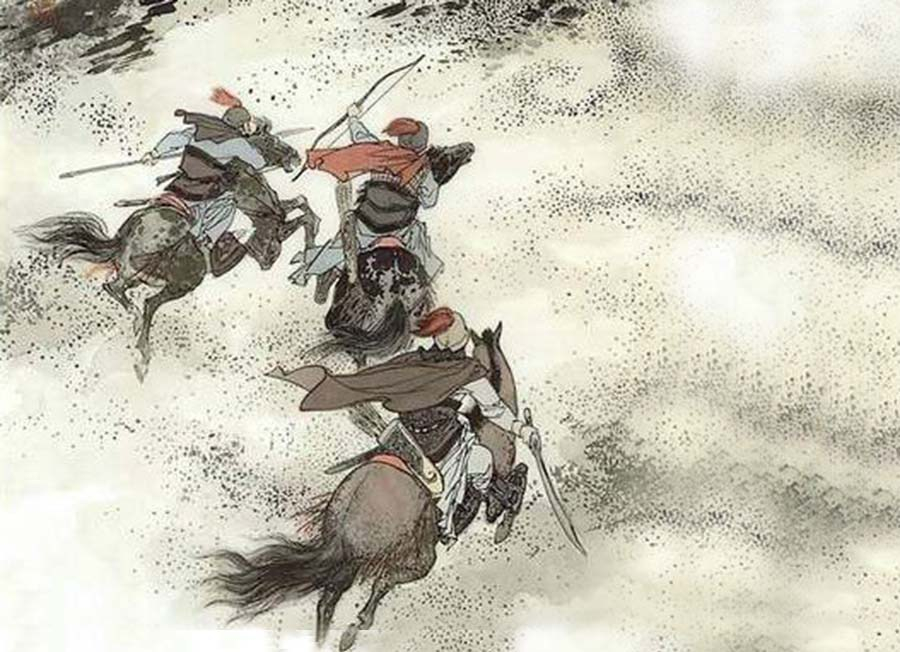Three of four, border songs of the leader, by Lu Lun.
The title – 塞 下 曲 四 首 之 三
The first two Chinese characters, 塞 下, rhyme, sài and xià, denoting the critical juncture where civilization ends and one passes into foreign lands.
The poem falls in the genre of border songs or frontier songs. These poems take place at strategic passes, on the western border with Tibet or on the northern borders with Turkic tribes. The scene might be a mountain pass or underneath the wall built to keep out the invaders.
The third character is the Chinese equivalent of song, qū.
The fourth, fifth, and sixth characters are beautifully fricative assonants, sì, shǒu, zhī.
The poem –
月 黑 雁 飛 高
單 于 夜 遁 逃
欲 將 輕 騎 逐
大 雪 滿 弓 刀
Rhyme: Gāo, táo, zhú, dāo (aaba)
A dark moon, the wild geese fly high (gāo)
At night, the Mongol chieftain escapes and flees (dùn táo)
Wishing, willing, lightly clad, we hunt the enemy
In snow piled high to our bows and swords (dāo)
The battle is with the nomadic Xiongnu tribes to the north of China. Generally, they are identified as Mongols, sometimes Huns, sometimes Tukic tribes. The chieftain has fled and while the wild geese scatter underneath a dark moon, the enemy flees, hunted down by lightly clad Chinese cavalry. They carry bow and arrow and the dāo, a single-edged Chinese sword, convenient for slashing and chopping at close range.
French translation
La lune, c’est noire, les oies sauvages volent haut et loin
La nuit, les Turcs s’échappent et fuient
Souhaitant, désireux, légèrement vêtus, nous les chassons
Avec la neige jusqu’à nos arcs et couteaux

Lu Lun, was a poet of the Middle Tang Dynasty, who was born circa 737 in Fanyang, and died circa 788. The An Lushan Rebellion (755-763) affected his career path as it did many of the poets. Though the Tang Dynasty withdrew from Central Asia after the rebellion was put down, the interest in earlier military success on the frontier remained strong. The frontier landscape was harsh, the mountains tall and desolate, the rivers cold, the desert dry and unforgiving, the garrison troops were, in the main, lonely and suffering, but by will and successful generalship, they overcame the Tibetans at the western frontiers and the Turkic nomads on the north.












